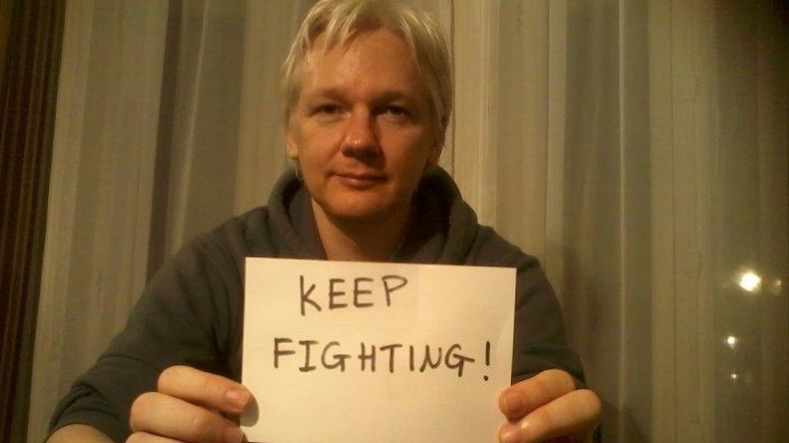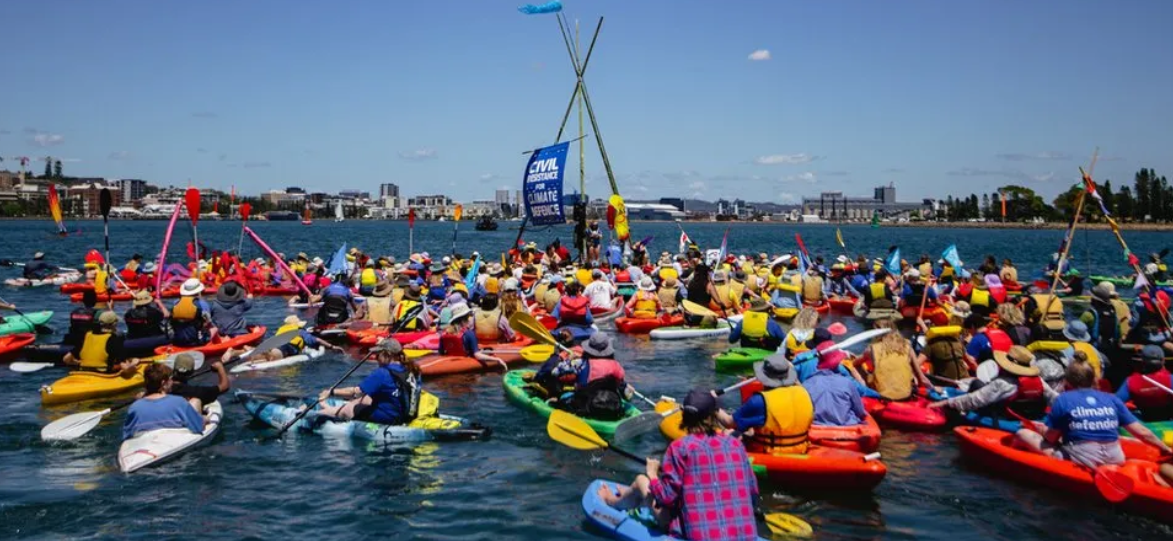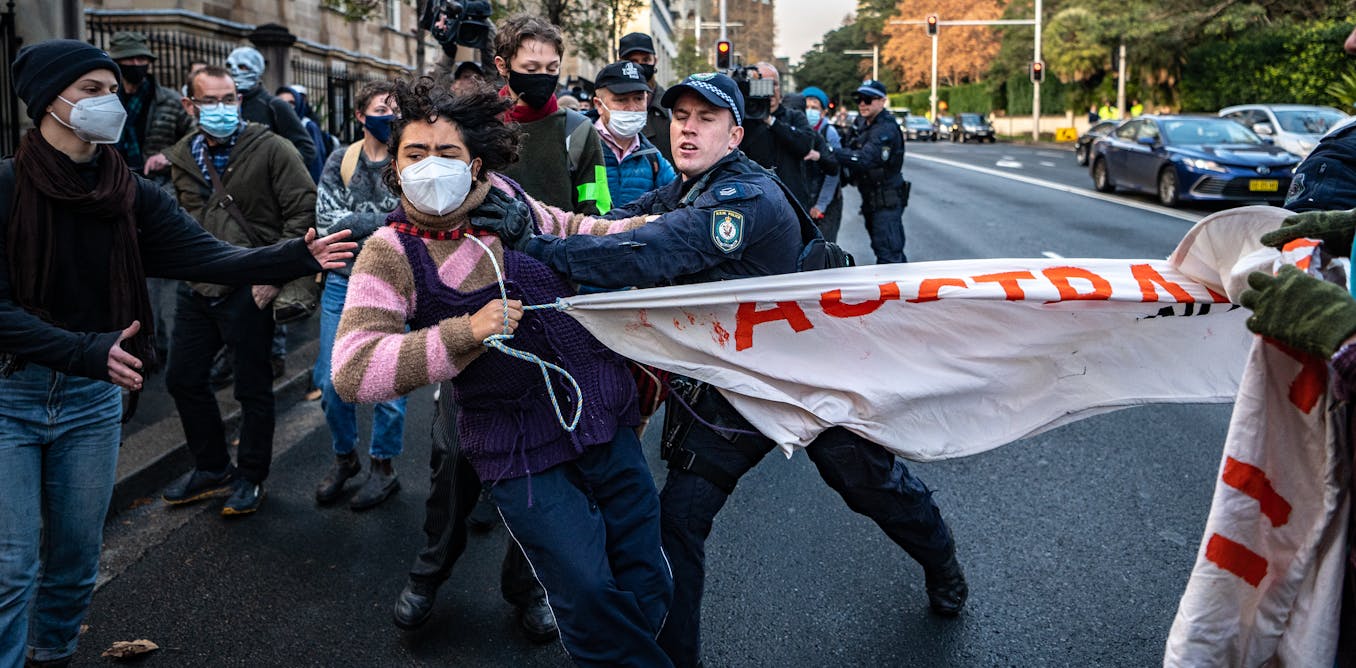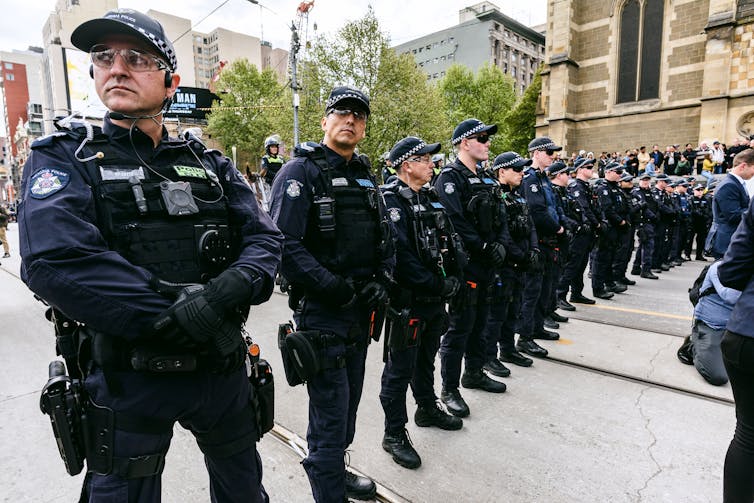Australia Restores UNRWA Funding as Israel Kills Aid Workers, Starving Gazans
Original article by BRETT WILKINS republished from Common Dreams under Creative Commons (CC BY-NC-ND 3.0).

“Restoring UNRWA funding is the bare minimum,” said one Australian Green senator. “The Labor government must publicly pressure Israel to allow aid into all parts of Gaza.”
Australia said Friday that it would reinstate funding for the United Nations United Relief and Works Agency for Palestine Refugees in the Near East, which has lost hundreds of millions of dollars in international financing due to unsubstantiated Israeli claims that UNRWA staff participated in the October 7 Hamas-led attacks on Israel.
“The best available current advice from agencies and the Australian government lawyers is that UNRWA is not a terrorist organization,” Australian Foreign Minister Penny Wong said in Adelaide while announcing a new funding package for the agency, which works to aid Palestinians forcibly displaced during the Nakba, or “catastrophe” through which the modern state of Israel was established in 1948, as well as their descendants.
In addition to restoring $6 million in UNRWA funding, Wong said Australia would contribute another $2 million to the United Nations Children’s Fund and would deploy a C-17 Globemaster transport plane to assist humanitarian airdrops over Gaza.
Sen. Mehreen Faruqi of New South Wales and the Australian Greens welcomed the shift, asserting that “restoring UNRWA funding is the bare minimum” Australia should do.
“The Labor government must publicly pressure Israel to allow aid into all parts of Gaza,” Faruqi stressed. “Starvation is a weapon of war, and Israel is blocking aid to reach the people of Gaza in brazen contravention of the [International Court of Justice’s] ruling” ordering Israel to prevent genocidal acts.
“I hope this is the start of the Labor government breaking away from their unquestioning and immoral support for Israel,” the senator added.
Simon Birmingham, leader of the center-right Liberal opposition in the Senate, said his party does not support the Labor government of Prime Minister Anthony Albanese “acting without and ahead of the United States in terms of decisions around this funding.”
Following Israeli claims—reportedly extracted from Palestinian prisoners in an interrogation regime rife with torture and abuse—that 12 of the more than 13,000 UNRWA workers in Gaza were involved in the October 7 attack, Australia and nine other nations including the United States cut off funding to the largest humanitarian aid organization operating in the besieged coastal enclave.
UNRWA subsequently terminated nine employees in response to the unfounded Israeli claims, without any evidence to support their firing. UNRWA Commissioner-General Philippe Lazzarini later called the move an act of “reverse due process.”
The European Union and nations including Canada and Sweden have also reinstated funding for UNRWA, which Lazzarini said “is facing a deliberate and concerted campaign to undermine its operations.” The agency has been struggling to provide shelter, aid, and other lifesaving services to Gazans facing not only Israeli bombs and bullets but also a genocidal siege and blockade that are starving Palestinians to death.
Australia’s decision came as Israeli attacks on aid convoys, food distribution centers, and desperate, starving Palestinians in Gaza continued. On Thursday, Israeli forces killed at least 20 people and wounded more than 150 others as they awaited delivery of humanitarian aid at the Kuwait Roundabout in Gaza City. The previous day, a UNRWA staffer was among five people killed and more than 20 wounded in an attack on a food distribution center in Rafah, Gaza’s southernmost city. Israeli officials claimed the slain man was a Hamas commander.
According to UNRWA, at least 165 of the agency’s staff members have been killed since October 7. Over 150 UNRWA facilities have been attacked by Israeli forces, while more than 400 Palestinians have been slain while seeking shelter under the United Nations flag.
UNRWA also says its workers have been tortured by Israeli troops trying to force them to falsely confess to participating in the October 7 attacks.
Gaza officials said earlier this week that at least 400 Palestinians seeking humanitarian aid have been killed by Israeli forces since the February 29 “Flour Massacre,” in which at least 118 people were killed and more than 760 others wounded while waiting for an aid convoy in Gaza City.
More than 112,000 Palestinians have been killed or wounded in Gaza since October 7, including people missing and presumed dead and buried beneath the rubble of the strip’s hundreds of thousands of bombed-out buildings. The majority of the dead are women and children. Around 90% of Gaza’s 2.3 million people have been forcibly displaced. Disease and starvation are rampant, and a growing number of Palestinians—mostly children but also elders and other vulnerable people—are starving to death.
After 161 days of near-constant slaughter, there is still no cease-fire in sight.
Original article by BRETT WILKINS republished from Common Dreams under Creative Commons (CC BY-NC-ND 3.0).
- Amnesty Says Cutting Off Aid To UNRWA While Arming Israel Is ‘Stark’ Hypocrisy ›
- UNRWA Says Funding Cuts Have Pushed It To ‘Breaking Point’ ›
- 20+ NGOs Condemn ‘Reckless’ Decision To Cut Off UNRWA Aid ›
- While Dismissing ICJ Genocide Finding, US Cuts UNRWA Funds Over Israeli Allegations ›
- ‘Scandal’: Israeli Dossier ‘Provides No Evidence’ For Claims Against UNRWA Staff ›



